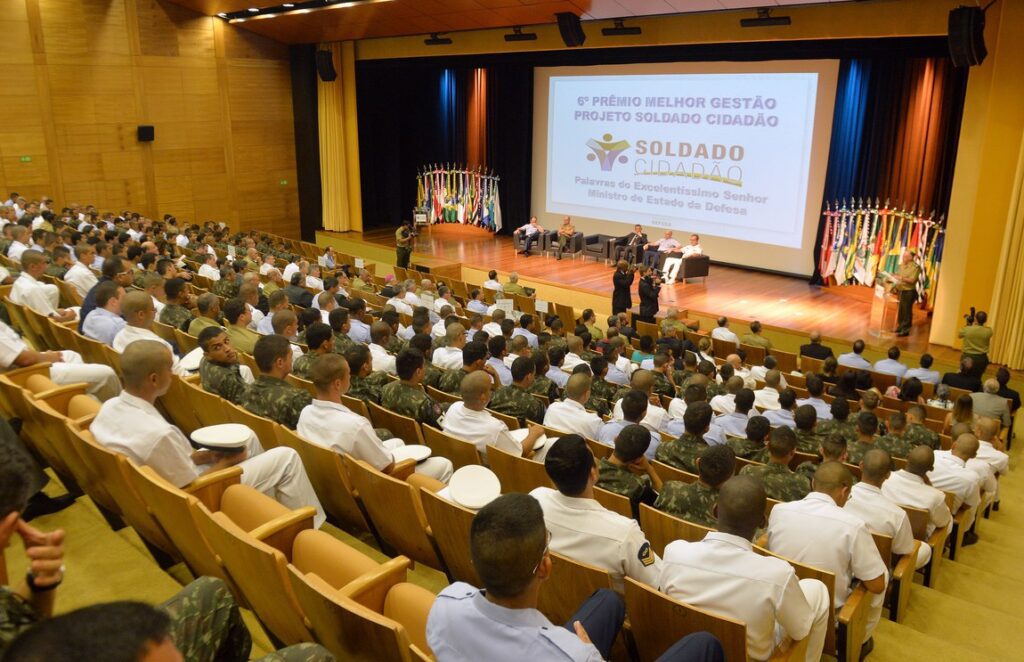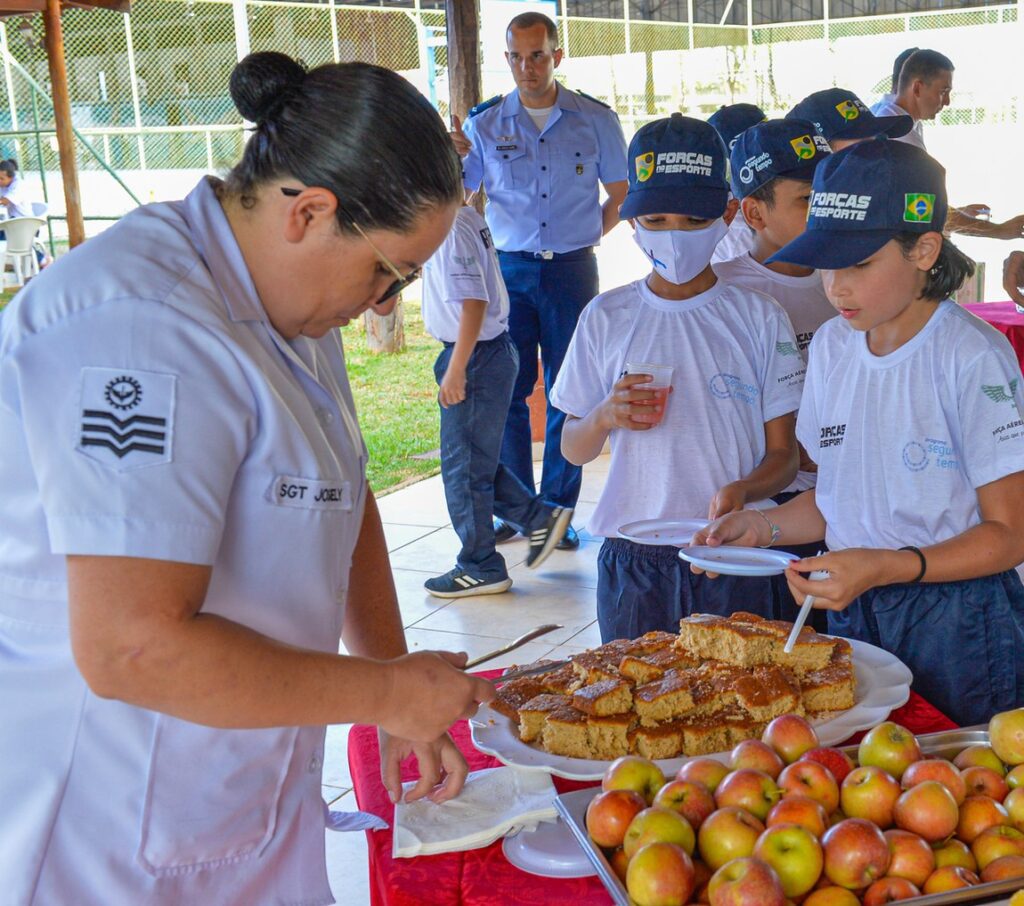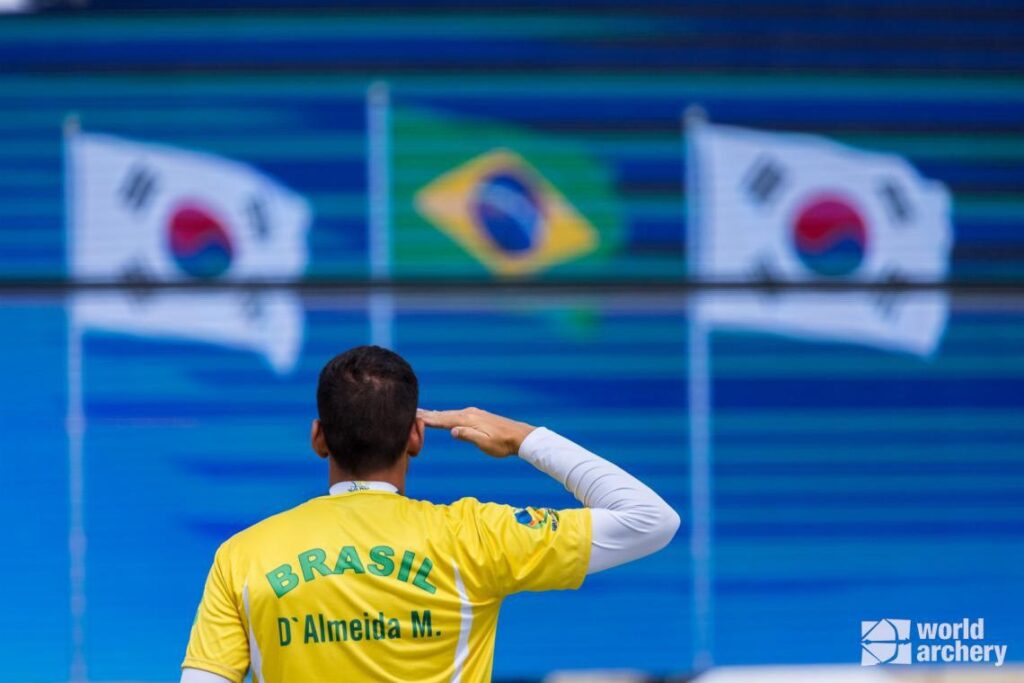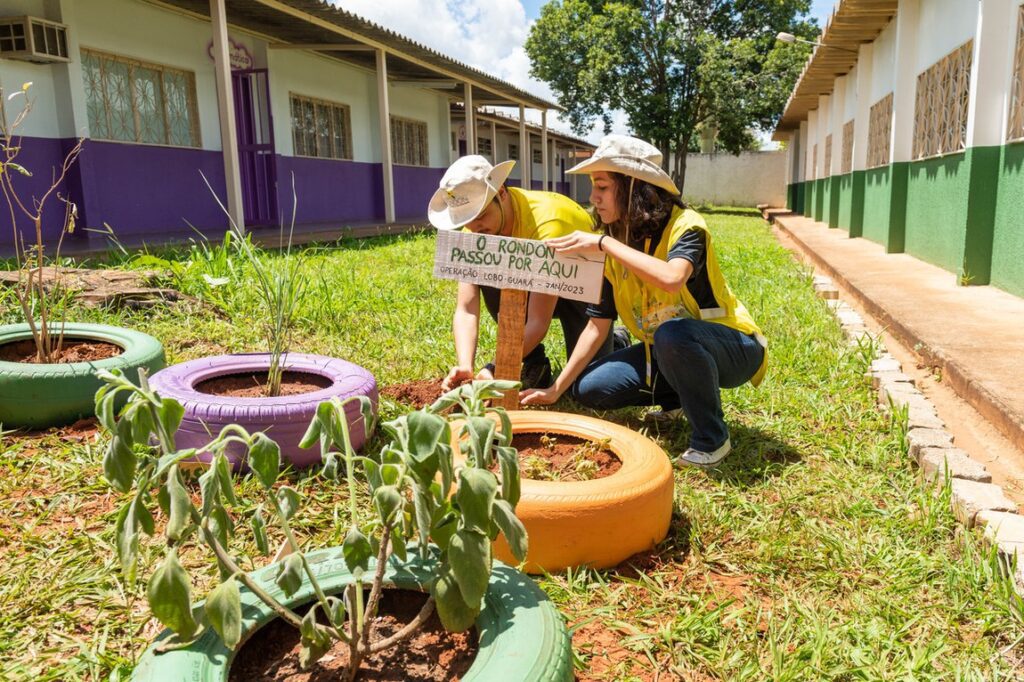Júlia Campos
On the eve of its 24th anniversary, the history of the Ministry of Defense (MD) reveals the construction of a legacy in favor of the Brazilian population, based on the guarantee of the country’s sovereignty. Within the mission of preparing and employing the Armed Forces, it is important to reinforce that the organ also invests in educational and sporting measures that strengthen values such as citizenship, inclusion, patriotism, and civism, besides promoting the reduction of regional inequalities. These are actions that enhance Brazilian culture and contribute to the process of forming a national identity. Among the initiatives, the Defense Department supports the Forces in Sports Program (Profesp), the João do Pulo Project (PJP), the Rondon Project, the Citizen Soldier Project (PCS), and the High Performance Athletes Program (PAAR). Together, these initiatives have benefited about 2.3 million people.
The Secretary-General of the Ministry of Defense, Luiz Henrique Pochyly da Costa, highlighted the ministry’s role in improving the quality of life of citizens. “Since its creation, on June 10th, 1999, the ministry develops and participates in projects that aim to improve the well being of vulnerable communities and in places that are more distant from the big centers, besides contributing to reduce the Brazilian social deficit. And it is with this view of valuing human life that national development happens. We live in a country full of diversities, whether in customs, geography, climate, and economy, among others. In this territory of continental proportions, only the Armed Forces are able to bring the presence of the State to the most isolated, but never forgotten, people”, he stated.
Citizenship for all – One of the greatest proofs that the military actively participates in the life of the population is the Forces in Sports Program (Profesp) and the João do Pulo Project (PJP). Currently, these initiatives serve around 25 thousand children and more than 1000 disabled people all over the country. Besides the practice of sports, the beneficiaries can count on educational, social, cultural, and civic activities in several military organizations in the Navy, Army, and Air Force.
Profesp has been run by the Defense Department since 2003, with the aim of contributing to the valorization of children and teenagers, reducing social risks, and strengthening citizenship and inclusion. The program is also responsible for the social integration of the beneficiaries, youngsters from 6 to 18 years old, through the access to the practice of several activities, socially inclusive, focused on education, sports, and physical and mental health. Among the workshops offered are: athletics, swimming, rowing, sailing, canoeing, music, board games, soccer, basketball, and school reinforcement.
The PJP is an extension of Profesp. The project was created in 2015 for the social reintegration of military personnel who, during their careers, have acquired some physical disability as a result of an accident or illness. Currently, it enables the social inclusion of people with disabilities over 6 years of age.
“Another outstanding field of action in the portfolio is represented by the social projects in the scope of the Ministry of Defense. The Rondon Project, which has been running for 55 years, has assisted almost 25 thousand “rondonistas”, from 2,469 educational institutions,” says the Minister of Defense, José Mucio. Rondon is an inter-ministerial action of the federal government, coordinated by the Defense and conducted in partnership with other agencies, besides state governments, city halls and Higher Education Institutions (IES). The goal of the initiative, which has already been in 1,296 municipalities, is to contribute to the development and strengthening of citizenship in university students, by employing sustainable solutions for social inclusion and for the reduction of regional inequalities.
The Armed Forces provide logistical support to the project’s operations, as well as providing adequate security conditions to all participants. The name Rondon is a tribute to Marshal Cândido Mariano da Silva Rondon (1865-1958), a military man, sertanista, and engineer famous for his exploration of the state of Mato Grosso and the Western Amazon Basin, as well as for his support of Brazil’s indigenous populations. Every year, around a thousand university students are sent to municipalities with low Human Development Indexes (HDI), for a period of 15 days.
The actions carried out are focused, as a priority, on areas such as health, education, environment, human rights, labor, production, agriculture, and basic sanitation, among others. The knowledge shared by the rondonists – students and teachers – is the main legacy transmitted to the communities served, and this is done in a sustainable way. The Rondon has already trained more than 2 million knowledge multipliers among producers, public agents, teachers and local leaderships.

Social Responsibility – The MD understands that it is not enough to recruit young people every year, but that it is necessary to qualify them. Thus, the Soldier Citizen Project (PSC), for 19 years, has been working on the social and professional formation of citizens who do their military service. The aim is to complement the construction of citizenship and facilitate entry into the job market for those who do not remain in the Armed Forces. Since 2004, the initiative has already benefited more than 260 thousand young people all over Brazil. The courses, given by civilian, public and/or private institutions of recognized competence, include basic notions of entrepreneurship, ethics, and citizenship, according to the demand of the regional job market and the preference of those interested. Some of the training areas covered are: information technology, telecommunications, mechanics, food, civil construction, graphic arts, clothing, textiles, electricity, commerce, communication, transport, IT, and health.

The Defense and the sport – The wish of any athlete is to have the conditions to fully dedicate himself to training and, thus, achieve results in his career. The High Performance Athletes Program (PAAR) fulfills exactly this role, as a relevant support to the development of national sports. Currently, the initiative contributes to the preparation of 563 Brazilian athletes. Since 2008, in partnership with the Ministry of Sports, the Defense incorporates athletes to the Armed Forces, on a temporary basis, for up to eight years. The objective of the initiative is to promote the participation of military athletes in national and international competitions, and also to support Brazilian military teams in sporting events conducted by the International Military Sports Council (CISM) and the South American Military Sports Union (UDMSA).

“For the development of national sport, it is fundamental. Being in the Air Force gives this security and tranquility for the work. Being able to train 24 hours a day is the most important part. To get to the top of the world, you have to be doing just that,” says Marcus D’Almeida, Aeronautics Third Sergeant and leader of the world archery ranking. On May 21, he won another gold when he stood on the podium of the Archery World Cup, in Shanghai. D’Almeida joined the Brazilian Air Force (FAB) at the age of 18. Today, at 25, he is reaping the fruits of his dedication. In his first year of PAAR, he participated in the 2016 Rio Olympics, when he was disqualified in the first round. In the following edition of the competition, in Tokyo, the elimination came in the round of 16, by the Italian Mauro Nespoli, although he still achieved the best result of a Brazilian in the history of the sport in the Olympics. Currently, Marcus is the best archer in the world. “I entered very young and, since the beginning, they believed in me,” says the athlete.
The incorporation of athletes is done by enlistment, on a voluntary basis, and the selection takes into account the results in national and international competitions. Thus, the medals already won during the professional history become points in the selection process for filling vacancies. After being incorporated, the benefits are countless, such as pay, 13th salary, vacations, medical assistance (including nutritionist and physiotherapist), besides all military sports facilities suitable for training, in the Navy centers (Admiral Adalberto Nunes Physical Education Center – Cefan), the Army (Army Physical Training Center – CCFEx – and Deodoro Sports Complex), and the Air Force (Air Force University – Unifa).
General Secretariat, 10 years of management and direction – In the MD, the General Secretariat is responsible for these programs, among many other actions. Established by Decree No. 7,974 (April 1, 2013), the General Secretariat is responsible for the management of the portfolio. Among its various competencies, the SG is responsible for advising the Minister of Defense in the definition of guidelines; coordinating and planning the activities of the Secretariats of Budget and Institutional Organization (Seori), Defense Products (Seprod), Personnel, Health, Sports and Social Projects (Sepesd), as well as the Management and Operational Center of the Amazon Protection System (Censipam) and the Department of the Northern Border Program (DPCN).

